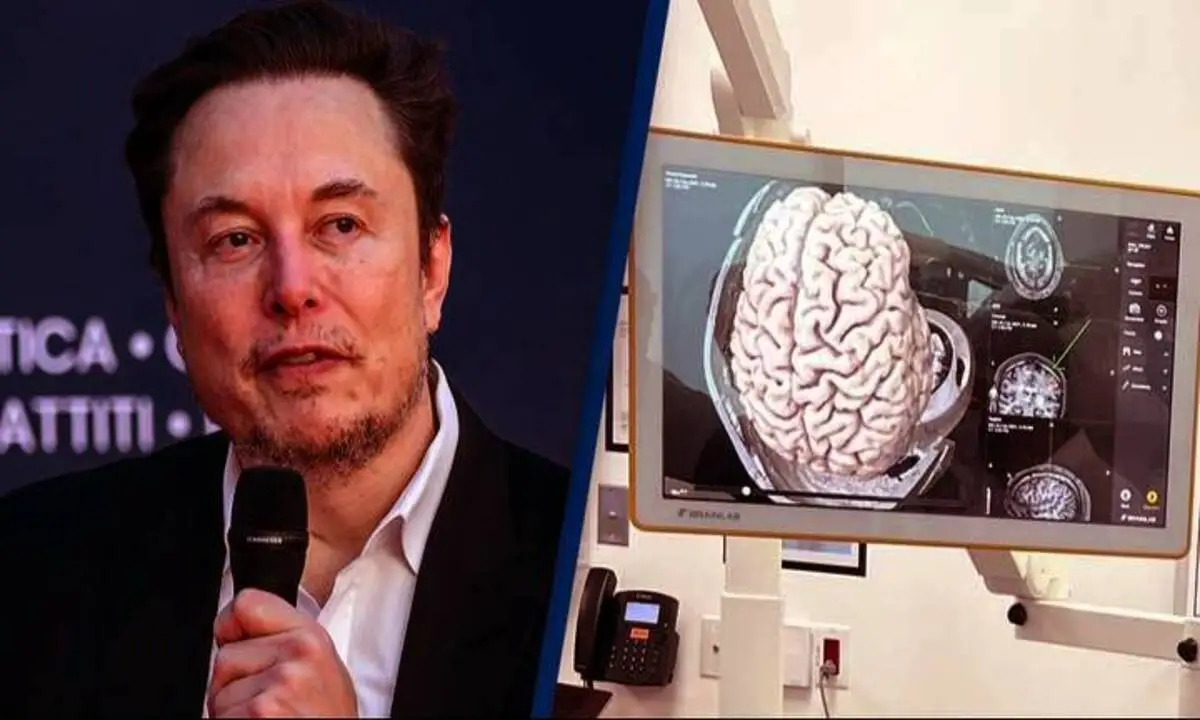Elon Musk, the visionary entrepreneur and founder of Neuralink, recently announced a groundbreaking development in the field of neurotechnology. In a post on his social media platform "X," Musk revealed that Neuralink has successfully implanted a chip in a human brain for the first time. This achievement signifies a major milestone for Neuralink's mission to bring transformative technology from the laboratory into real-world applications. The operation, which took place on Sunday, has the patient already in the recovery process.
The Promise of Neuralink's Brain Chip
While Elon Musk provided few details about the implantation, he mentioned promising initial results in neuron spike detection. The chip, designed to enable individuals to control external devices through mere thoughts, holds the potential to revolutionize the way humans interact with technology. Musk's vision for Neuralink's first product, named "Telepathy," extends beyond technological control, targeting users who have lost the use of their limbs.

Read More: Kamila Valieva Doping Scandal: Resolving the Olympic Medal Standings
This futuristic approach could redefine communication for those with physical limitations. Musk illustrated this concept, stating, "Imagine if Stephen Hawking could communicate faster than a speed typist or auctioneer. That is the goal." The prospect of enhancing communication for individuals with paralysis or limb loss opens up new possibilities for their integration into the digital world.
Neuralink's Journey and Challenges
Neuralink has been actively working on brain-computer interfaces for half a decade, with the ultimate goal of connecting the human brain to a computer. However, the journey has not been without challenges and scrutiny. The company faced controversy in 2022 when a monkey died during an attempt to play Pong, one of the first video games, raising concerns about the ethical implications of Neuralink's experiments.
In response to these challenges, Neuralink has obtained FDA clearance for human clinical trials. The startup began recruiting patients with quadriplegia caused by cervical spinal cord injury or amyotrophic lateral sclerosis (ALS). The clinical trial, known as the "PRIME Study" (Precise Robotically Implanted Brain-Computer Interface), focuses on ensuring the safety and functionality of the chip implant and surgical robot.
https://twitter.com/elonmusk/status/1752098683024220632
To address past criticisms, Musk emphasized the importance of rigorous testing and safety measures. The company's commitment to ethical considerations and regulatory compliance is evident in its efforts to navigate the complex landscape of neurotechnology development.
The Future Vision and Regulatory Landscape
Elon Musk envisions a future where individuals with neurological disorders can benefit from brain-nervous system interfaces. The technology holds great potential, but it requires invasive neurosurgery and is still in experimental stages. Regulatory approval, as outlined by the FDA in a 2021 paper, is a crucial step before Neuralink's brain implants can reach a broader market.

While Neuralink and Elon Musk have garnered significant attention, other companies like Synchron have also been actively working in the brain-computer interface space. Synchron received FDA clearance in 2021 to test a device in humans, showcasing the rapid progression in this field. Tara Spires-Jones, president of the British Neuroscience Association, acknowledges the potential of brain-nervous system interfaces but emphasizes that it will likely be many years before they become commonly available.
Conclusion
In conclusion, Elon Musk's Neuralink achieving successful brain chip implantation in a human represents a significant step forward in unlocking the potential of human-machine interfaces. As the technology progresses, regulatory considerations and ethical concerns will play pivotal roles in shaping the future landscape of neurotechnology.
While the road ahead may present challenges, the collaborative efforts of companies like Neuralink contribute to the advancement of a field that holds immense promise. As further developments unfold, it is crucial to maintain a balance between innovation and ethical responsibility to ensure that neurotechnology enhances human lives without compromising safety and privacy.
This story will be updated as further developments unfold.
CNN’s Clare Duffy and Nadia Kounang contributed to this report.



You must be logged in to post a comment.